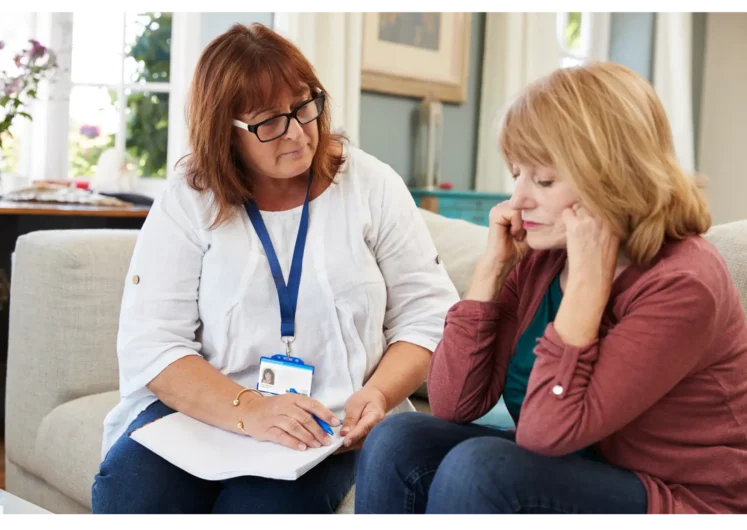Outreach work
Outreach work aims to find people in vulnerable positions or to uncover crimes.

In Finland, human trafficking outreach work is carried out by both the authorities and third-sector operators, such as NGOs and churches. Potential trafficking victims may also be discovered through other kinds of outreach work, such as youth outreach.
People conducting outreach include:
Social and health care professionals
Social and health care professionals often encounter vulnerable persons at their work. By observing certain signs, they can identify trafficking victims and guide them to seek assistance.
The guideline for social and health care professionals, “Ihmiskaupan uhrin ensivaiheen tunnistaminen ja palveluohjaus” (First-stage identification and service counselling of trafficking victims, IOM 2017) will help professionals identify potential signs of human trafficking and refer the customer to the Assistance system for victims of human trafficking or other support measures provided by their municipality of residence or an NGO. According to the guideline, professionals must first provide the potential victims with urgent health and social care and then refer them to assistance.

Occupational health and safety inspections by the regional state administrative agencies
The occupational health and safety authorities (AVI) inspect health and safety at work. For example, during a restaurant inspection they may spot people who are clearly in a vulnerable position. The occupational health and safety authorities have a guideline for uncovering trafficking in human beings and referring victims to assistance. If necessary, they will work closely with other authorities, such as the police. During the inspections, they can also distribute material that can guide potential victims to contact the Assistance system for victims of human trafficking.
Third sector
Many NGOs, churches and other third-sector operators work with vulnerable groups of people. Their activities will reach people who will not be known to the authorities. Many of them offer services with a low threshold anonymously, confidentially and free of charge, and may also reach potential victims of human trafficking.

Trade unions also conduct outreach and may encounter victims of human trafficking related to labour exploitation.
The third sector offers many services from helplines to anonymous health care services free of charge. With their customer’s consent, they can refer the customer to the services provided by the authorities.
Contact details for the NGOs working with trafficking victims are also available at humantrafficking.fi.
The police and the Border Guard
The police and the Border Guard are the Finnish pre-trial investigation authorities. Part of their job is to prevent and investigate crimes.
The police may encounter human trafficking through the reports they receive, as part of the surveillance operations carried out in partnership with other authorities, or through their own activities to uncover crimes. The police will take into account the possibility of human trafficking when they investigate suspected crimes related to the selling of sex, exploitation of labour or begging.
Trafficking victims may also report to the police independently, for example by approaching a police patrol or asking help from the police station. With the customer’s consent, the police can refer the victim to the assistance system for victims of human trafficking or another provider.
The Border Guard investigates trafficking crimes, especially those related to the arrangements for irregular entry. Trafficking in human beings can also be detected during border control, when the Border Guard officers try to identify victims among passengers. The Border Guard refers the potential victims to the providers of assistance with the customer’s consent.